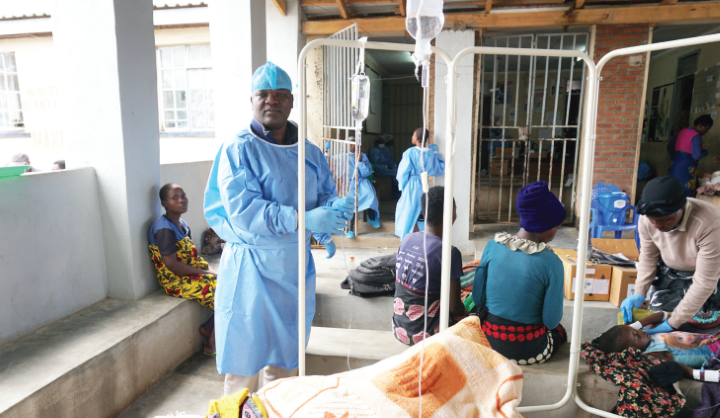Let’s Talk: About Depression, about Nutrition
Today is World Health Day and the theme is Depression, a condition, which according to the World Health Organisation, affects over 300 million people worldwide. But why the focus on talking about depression? Unlike a gaping wound that is easily visible to all, attracting concern and action, Depression is largely hidden. It is not well understood by many and the signs and symptoms may vary. To change this prevailing situation, we need to talk about it, understand what it is, who it affects and how to overcome it.
Similar to depression,malnutritionis widespread and often hidden.Over 1.6 billion people worldwide suffer from anaemia[1], the result of a micronutrient deficiency. The United Nations Food and Agriculture Organization estimates that about 795 million people of the 7.3 billion people in the world, or one in nine, were chronically undernourished in the period 2014-2016. And almost half of all child deaths are caused by poor malnutrition.
Yet only in recent years has momentum gained to address malnutrition. Evidence has shown the long-lasting and often irreversible damage caused by chronic malnutrition during the first 1000 days of life, and the resulting negative impact not just on the health and prosperity of individuals, but communities and nations. Economically, it makes excellent sense to address malnutrition. For every $1 invested in nutrition, the data shows that there is a return of up to $16. With this revelation, countries are now investing early in nutrition.
Progress has been slow and minimal action has been taken to address malnutrition! Why? Like depression, malnutrition is often misunderstood and symptoms may vary. “The child is full. S/he doesn’t cry for food. How can s/he be malnourished?”In our society, it is a common misunderstanding that it is not sufficientto have enough food. For good nutrition, it is vital to have enough of the right kind of food taken in the right environment. For instance one may have enough nutritious food, but poor sanitation may result in diarrhea that renders the body incapable of utilising all the nutrients in the food.
There is hope, as more people become better informed, more action is being taken to eliminate malnutrition. Global leaders, including in sub-Saharan Africa, recognise the need to prioritise nutrition as critical to the continent’s development.
However, much more still needs to be done by everyone, from farmers who produce the diverse and nutritious food we need to parents who buy and prepare food for their children.
Let’stalk about malnutrition and shareknowledge. Let’s talk about depression. Let’s talk about nutrition. Let’s talk and educate ourselves, firstly to understand what is behind these aggregated numbers. Secondly to understand the causes, the drivers, and the solutions.
If we don’t understand the extent of an issue we cannot treat it effectively. The Hunger and Nutrition Commitment Index for Africa (released in January 2017) was developed using data from only 45 African countries, information was not available from all 55 African countries. The 2016 Global Nutrition Report also supports the call for a data revolution for nutrition. The scarcity of data prevents us from learning from the progress being made at different levels. Moreover, it hides inequalities within countries, making it more difficult for governments to know about them and to hold them fully accountable. Without efficient monitoring and evaluation, we fail to fully understand the issues and hence cannot make the best investment choices. Without good data we cannot hold all stakeholders accountable.
The more we understand, the better positioned we will be to take action, to eliminate depression and malnutrition.
And without action, we will not meet the targets we have collectively set for ourselves in the Sustainable Development Goals, to end malnutrition for all by 2013.





